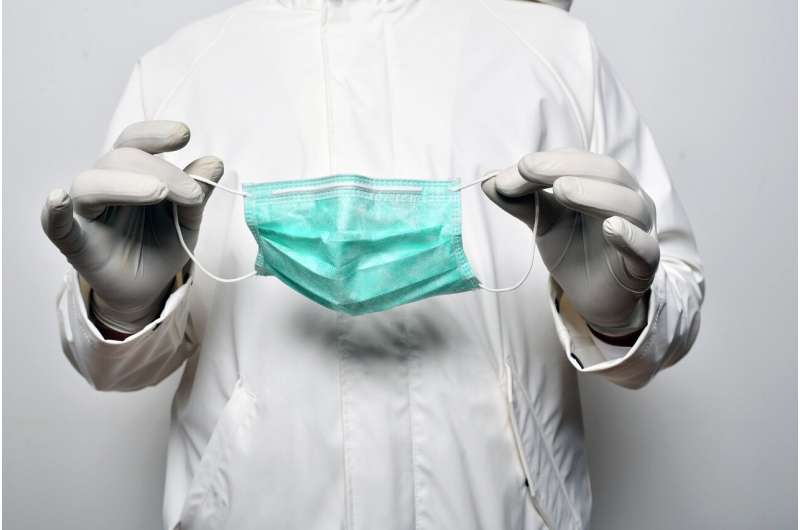This article has been reviewed according to Science X's editorial process and policies. Editors have highlighted the following attributes while ensuring the content's credibility:
fact-checked
trusted source
proofread
Properly fitting face masks can help block particulate pollution

If worn correctly, antipollution face masks can reduce health ailments and the benefits far outweigh the financial costs, according to a new large-scale study.
The research provides new findings about the value of masks that fit snugly around the face in everyday use and how human behavior affects their efficacy. The work has particular importance, given the growing problem of air pollution in urban areas and wildfires becoming more frequent worldwide.
"People should be encouraged to wear masks correctly to maximize their protective benefits which includes a proper fit to minimize inward leakage. Masks are not a complete substitute for staying indoors on heavily polluted days. They reduce exposure but do not eliminate it," said lead author Jinhua Zhao, the David J. Nolan Dean of the Charles H. Dyson School of Applied Economics in the SC Johnson College of Business and the College of Agriculture and Life Sciences.
The paper, "Are Facemasks Effective against Particulate Matter Pollution? Evidence from the Field," is published in the Journal of Environmental Economics and Management. Zhao's co-authors include Yazhen Gong, professor at Renmin University of China, and Ke Chen, professor at Shenyang Agricultural University, China.
The researchers conducted a study over five months during 2018–19 during the winter heating season, known for high levels of particulate matter pollution, in Shenyang, China, a city with a population of 8.31 million. They tracked 2,300 residents from 40 neighborhoods and monitored their outdoor activities, mask-wearing habits, and doctor visits related to respiratory or cardiovascular disease.
Participants received instructions about how to use the face masks, their effectiveness against pollution, and different prompts to reinforce the information, allowing the research team to observe variations in behavior and health outcomes.
The team found that face masks are 80% effective in protecting against particulate matter pollution—results that are at the higher end of the efficiency spectrum reported in previous lab studies. One reason for this high efficiency is that people adjusted their masks for a better fit, reducing the leakage of pollutants, which significantly improved the masks' performance in real-world conditions compared to lab conditions.
The study also investigated whether wearing face masks led people to spend more time outdoors on smoggy days, potentially negating some health benefits of the masks. Surprisingly, mask-wearing reduced rather than increased overall outdoor time due to the discomfort of wearing masks. However, the sense of protection masks offered led participants to spend more time outdoors on smoggy days than otherwise, reducing the health benefits of the masks by about 12%.
But overall, the researchers found that participants wearing masks had fewer doctor visits due to respiratory or cardiovascular diseases, and the health benefits of mask-wearing significantly outweighed their financial costs. They concluded that face masks are a cost-effective measure for reducing health damages due to air pollution.
The debate over the efficacy of anti-pollution masks mirrors early discussions about mask-wearing during the COVID-19 pandemic. Initially, there was significant resistance to masks in some countries, partly due to concerns about improper use and unintended behaviors. However, as evidence mounted, the effectiveness of masks in reducing virus transmission became evident, Zhao said.
"Our study provides strong evidence that face masks are effective in reducing health risks from particulate matter pollution, suggesting that promoting their use while acknowledging and mitigating behavioral responses can significantly improve public health outcomes," said Zhao.
As pollution remains a global issue, such measures can play a critical role in protecting public health, he said.
More information: Ke Chen et al, Are facemasks effective against particulate matter pollution? Evidence from the field, Journal of Environmental Economics and Management (2024). DOI: 10.1016/j.jeem.2024.103001





















